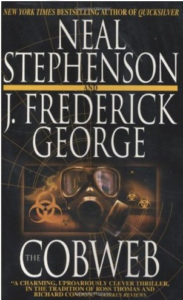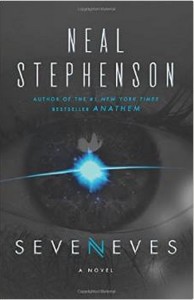Set in the near-ish future, Neal Stephenson’s latest novel (Termination Shock) charts a world gone haywire with the aftereffects of human-driven climate calamity. Like the last couple of novels I’ve read, it incorporated COVID into the storyline as well as the January 6th insurrection.
“…before you knew it there was a white guy in red-white-and blue war paint sacking the U.S. Capitol in what the media described as some kind of Viking getup but Rufus knew perfectly well was a Plains Indian-style bison headdress. And just like Comanches with their raids, those people didn’t stick around and try to plant their yellow rattlesnake flags on the Capitol dome. They just wandered off, having counted coup on democracy and taken a few cop scalps, and melted back into their nomadic trailer park encampments.
This excerpt reminded me of some of his descriptions in Snow Crash.

 “On the eve of Operation Desert Storm, the murder of an Arab exchange student at a local university puts Iowa deputy sheriff Clyde Banks on a collision course with both the CIA and Saddam Hussein. It seems the students are Iraqis conducting agricultural research on biological weapons in his midwestern town.” (Goodreads)
“On the eve of Operation Desert Storm, the murder of an Arab exchange student at a local university puts Iowa deputy sheriff Clyde Banks on a collision course with both the CIA and Saddam Hussein. It seems the students are Iraqis conducting agricultural research on biological weapons in his midwestern town.” (Goodreads) Of the half dozen or so Neal Stephenson novels I’ve read,
Of the half dozen or so Neal Stephenson novels I’ve read,